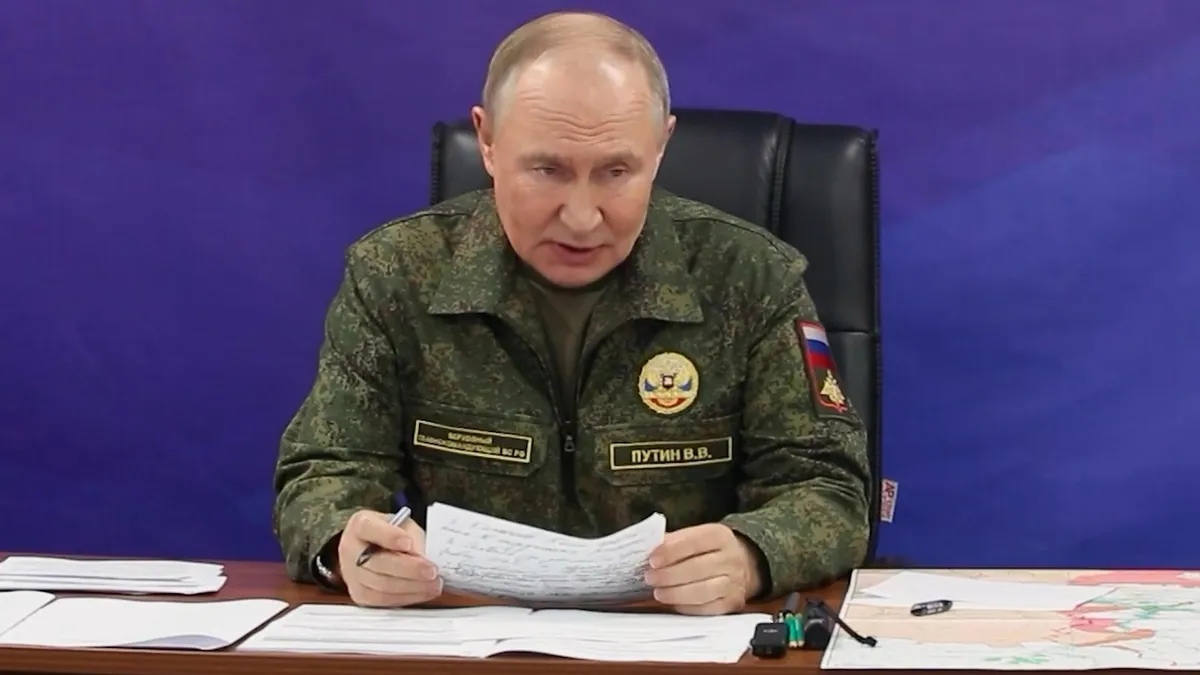
MOSCOW, Russia -- In a significant development for military technology, Russia has successfully tested a new nuclear-capable cruise missile that President Vladimir Putin claims will enhance the nation's defense capabilities. This missile, designed to bypass existing defense systems, brings Russia one step closer to deploying it within its military arsenal. In remarks shared on Sunday, Putin, dressed in military camouflage, met with senior military officials, including General Valery Gerasimov, the Chief of General Staff.
According to a video released by the Kremlin, General Gerasimov revealed that the new missile, named Burevestnik or "Storm Petrel" in Russian, covered an impressive distance of 14,000 kilometers (approximately 8,700 miles) during its recent test flight. The missile remained airborne for a remarkable 15 hours, and Gerasimov indicated that this duration is not its maximum limit. This extensive range and endurance highlight the missile's potential impact on global military dynamics.
During the meeting, President Putin emphasized the need to explore the various applications of the Burevestnik missile and to initiate preparations for its deployment within the Russian armed forces. He instructed General Gerasimov to focus on the missile’s final testing phases, underscoring the urgency of this development. Putin confidently claimed that the Burevestnik missile is virtually invulnerable to both current and future missile defense systems, thanks to its unpredictable flight path and extensive operational range.
In conjunction with these developments, President Putin ordered drills for Russia’s strategic nuclear forces, which included practice missile launches. These exercises took place amid the postponement of a planned summit regarding Ukraine with U.S. President Donald Trump. The Kremlin announced that the military drills involved all components of Russia's nuclear triad, including intercontinental ballistic missiles launched from facilities in northwestern Russia and from a submarine operating in the Barents Sea. Notably, the drills also featured Tu-95 strategic bombers executing long-range missile launches.
The successful testing of the Burevestnik nuclear-capable cruise missile marks a pivotal moment in Russia’s military strategy. With its extensive range and advanced technology, this missile could significantly alter the balance of power in global military affairs. As Russia continues to enhance its military capabilities, the implications for international security and defense strategies are profound, necessitating close attention from global powers.